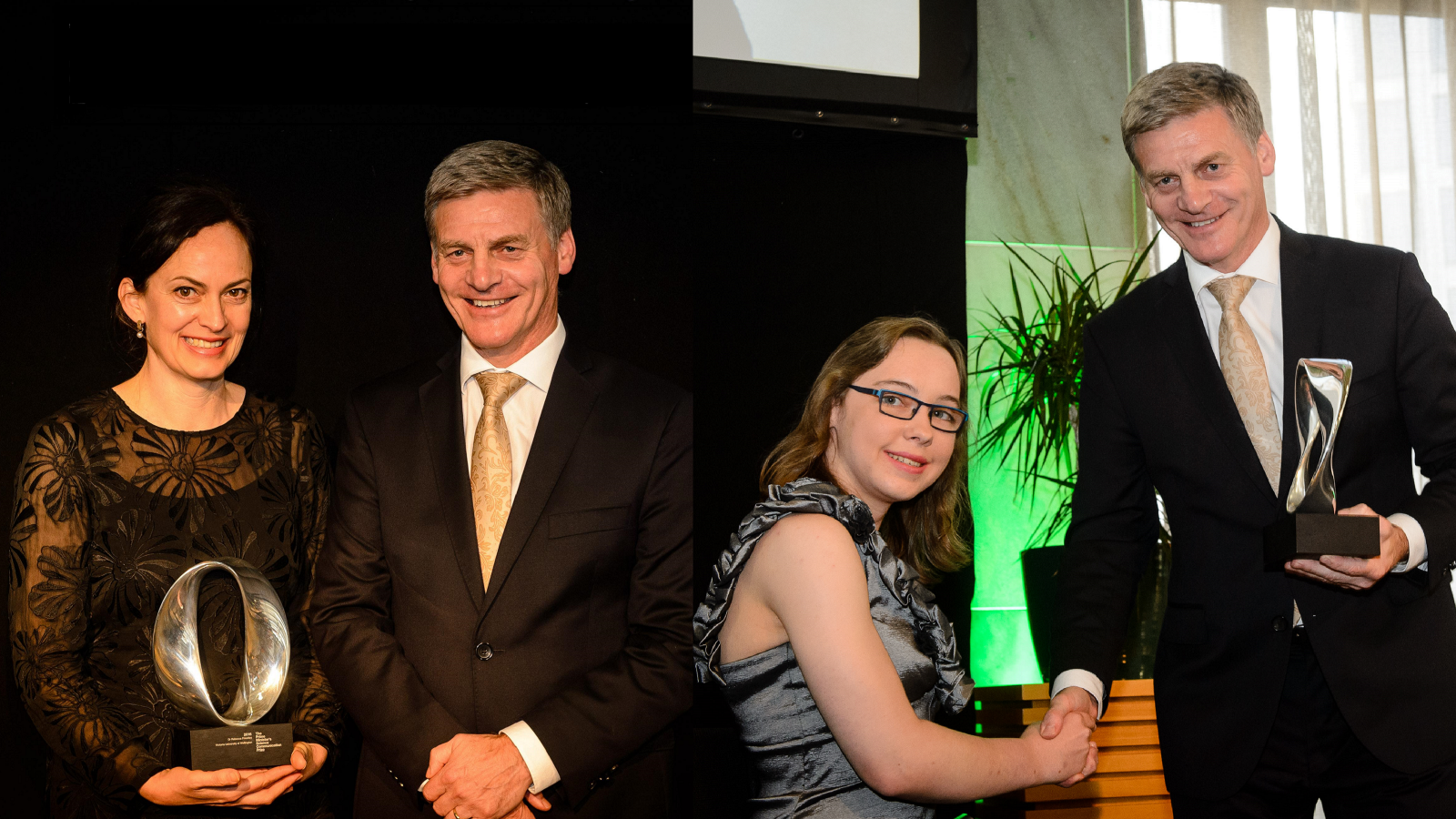
Dr Priestley, author and senior lecturer in Victoria’s Science in Society Group, received the $100,000 prize from the Prime Minister at an event in Wellington today.
Dr Priestley’s career in science communication spans more than 20 years. Over the past six years, she has written more than 200 science articles and features for the weekly magazine the New Zealand Listener. She is the author or co-author of eight books on the history of science, presents regularly at book and science festivals around the country and has curated exhibitions on the history of New Zealand science.
While celebrating science and attracting more young people into science careers are important, the role of science communication in democracy deserves equal attention, she says.
“To make decisions about their future, people need to be able to understand, discuss and ask informed questions about issues such as climate change, water quality and emerging technologies.
“A lot of the science communication taking place is not achieving that—there is academic research that shows, for example, that giving people more facts about the dangers of not vaccinating their children does not change the minds of those opposed to vaccination, in fact it makes them more entrenched.
“I think it is time for the science communication community to focus more on thinking about what we are doing, what we are trying to achieve and how we can do it better.”
Victoria University Vice-Chancellor Professor Grant Guilford congratulated Dr Priestley for what he described as “extremely well deserved recognition”.
“Dr Priestley is an articulate communicator and a talented scientist, who embodies Victoria’s commitment to leading debate on the important issues facing society.
“We are extremely proud of her achievement.”
Dr Priestley is a Victoria alumna, graduating with a Bachelor of Science with Honours in 1993. She also has a PhD from the University of Canterbury. Dr Priestley is currently studying toward a Master of Arts in Creative Writing at the International Institute of Modern Letters (IIML) whilst on research and study leave.
Dr Priestley teaches science communication and history of science at Victoria as part of the Science in Society Group’s suite of courses, co-teaches a creative science writing course at the IIML, is an associate investigator with Te Punaha Matatini, a Centre of Research Excellence, and leads a MOOC (massive online open course) about Antarctic science, the first to be offered internationally by Victoria, through the prestigious edX platform. This MOOC launches in April this year.
Some of the $50,000 of Dr Priestley’s prize money designated for science communication activities will be used to develop a new MOOC, this one on science communication. In addition, Dr Priestley will provide establishment money for New Zealand’s first fund to support independent science journalism and will bring an international science communication expert to New Zealand to present masterclasses and run workshops for science communicators.
She says winning the Prime Minister’s Science Communication Prize is a fantastic endorsement of the important role played by people involved in public engagement with science. “It’s great recognition that science communication has many aspects to it, including scholarly study and science journalism.”
Also in today’s ceremony at Parliament, Victoria student Catherine Pot was awarded the 2016 Prime Minister’s Future Scientist Prize.
Catherine, who is in her first year of a Bachelor of Science majoring in Mathematics and Physics, was awarded the Prize for her work investigating the van der Pauw method, which is used in experimental semiconductor physics in many university labs. Catherine came up with an experimentally-verified way of improving the technique so it can be more widely applied.
She originally worked on the problem for the 2016 International Young Physicists’ Tournament, held in Russia last year, and went on to win the Royal Society of New Zealand Wellington Branch Prize for Best Overall Exhibit at the NIWA Wellington Regional Science Fair 2016.
The 18-year-old, who came to university from Wellington’s Onslow College, plans to put her $50,000 prize money toward her tuition at Victoria.
